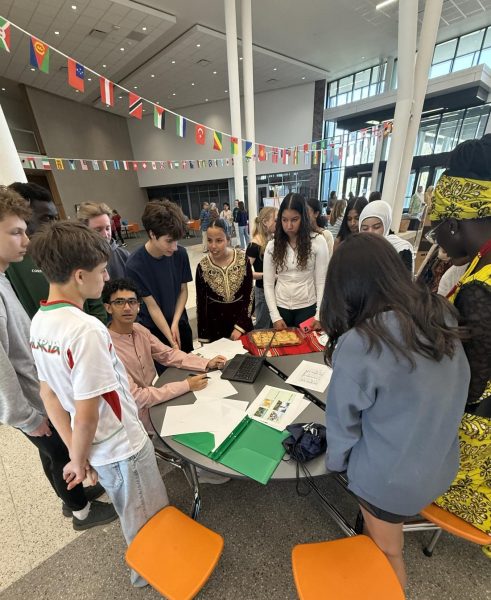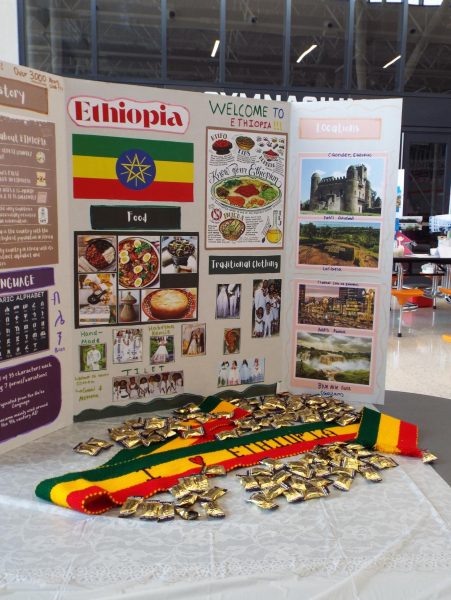With over 25 countries represented, the cafeteria of Ames High was transformed into a cultural showcase. Colorful posters and trifolds were on display as flags were strewn across tables alongside various cultural artifacts, while students wore traditional clothing to reflect their heritage. The highlight of the event, however, was the variety of food samples.
“I think it’s important because you can learn a lot from different people’s perspectives. There are so many different practices and beliefs in the world; it’s valuable to be educated about them,” said senior Siri Amuluru, one of the key organizers of the event.
After a one-year hiatus, Culture Fair returned this year, though challenges in planning the event persisted.

“Our biggest challenge was finding a date that worked for everyone, and then also reserving the necessary space. Admin told us we needed 20 to 30 countries to even run the event, so coordinating with the countries was even more difficult,” said Amuluru.
Throughout the evening, visitors moved from table to table, not only observing displays and sampling food, but actively engaging with the students representing their countries. Many took the opportunity to ask questions and hear personal stories, creating a meaningful exchange that would otherwise be unlikely.
“My favorite part of the event was having real conversations with people who wanted to know more about my country. It’s a lot more meaningful than just reading it from a poster,” said junior Bilen Aklilu, one of the event participants.
While the event primarily featured individual countries as different stations for people to visit and explore, many noted that this year’s event lacked any performances or entertainment that had been part of the event the last time it was held.
“I remember from freshman year that there were dances and games, and more activities in general. It just felt a little more interactive then,” said Aklilu.

Looking ahead, the organizers hope to establish Culture Fair as an annual event, one that is more thoroughly planned with a wider range of activities.
“This year, we couldn’t do any performances because everything was so last-minute, and a lot of our dance team members weren’t available,” explained Amuluru. “But I hope we can continue holding the event in the coming years.”
Despite the limited preparation and last-minute planning, Culture Fair was still able to draw a large turnout from students and family members who wanted the opportunity to celebrate diversity, and of course, enjoy the food.
“More than just teaching others about my country and culture, it helped me feel more connected to myself. It was nice to share that part of me with everyone else,” said Aklilu.





















